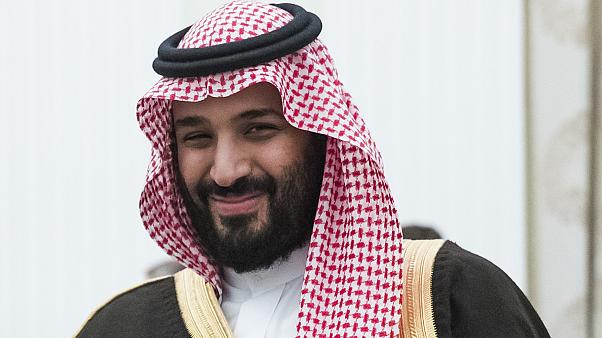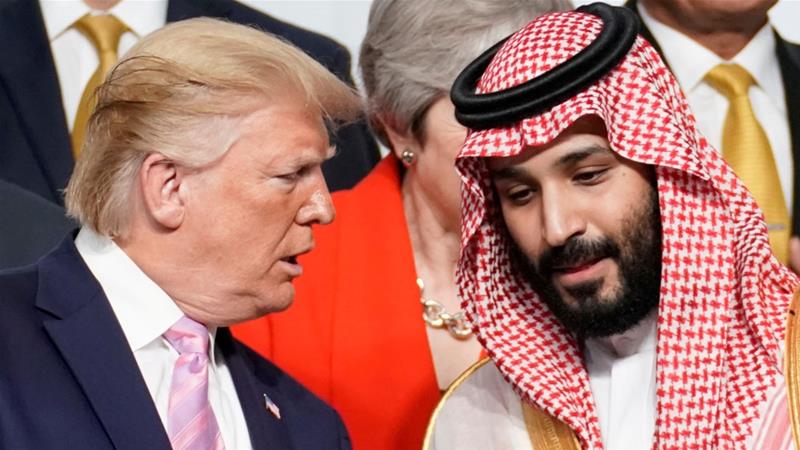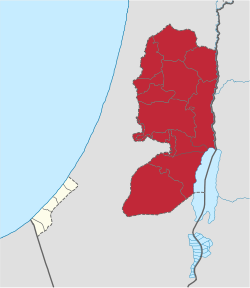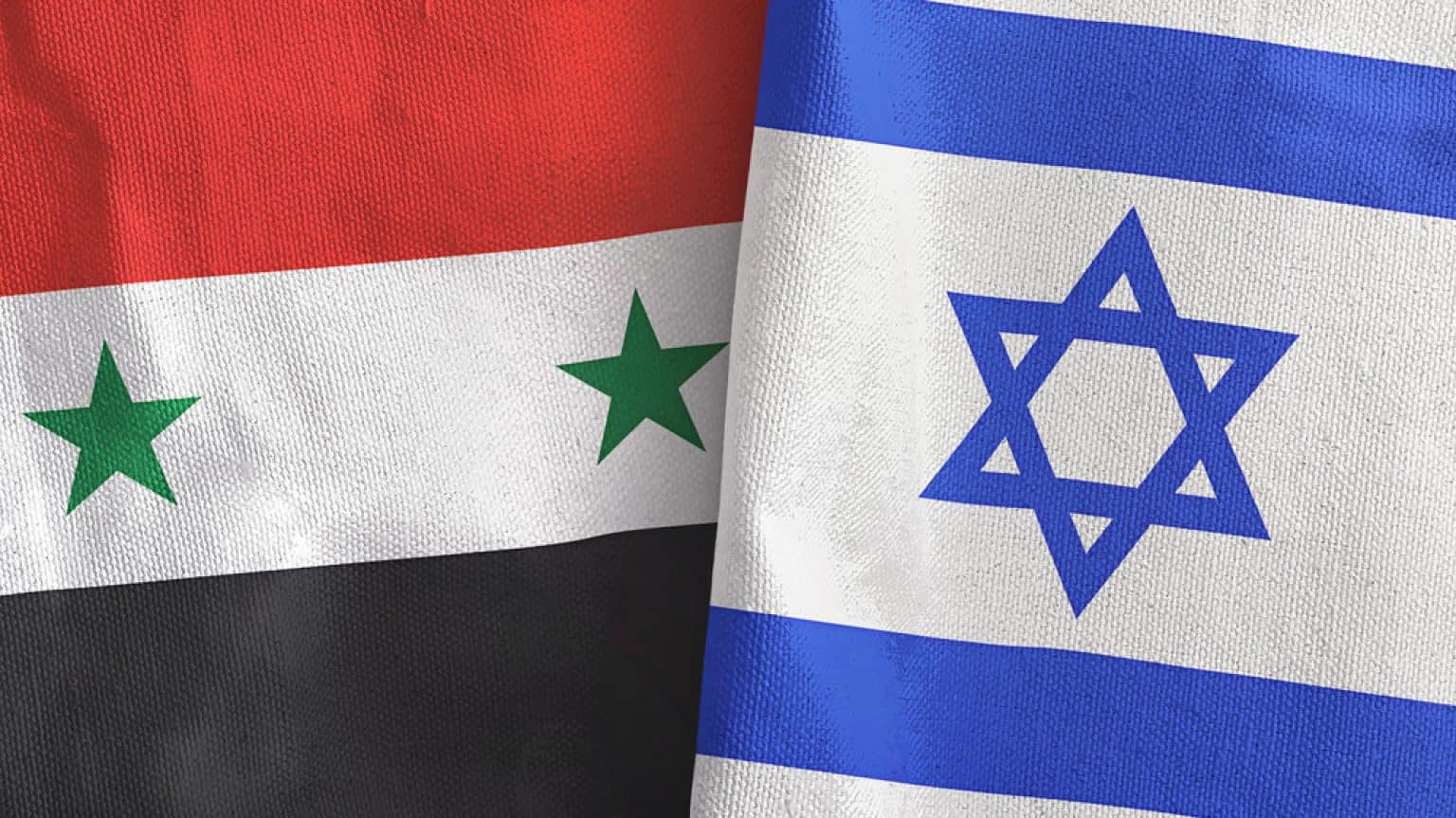
First, some background. There was a reason why King Salman put his son, MBS as No 2 in the Kingdom. The normal way of doing business with the world was over. A new approach was needed. The Kingdom was facing huge challenges. So, MBS became the Crown Prince. He is young, does not carry “any baggage”, from the past, and unlike his uncles and cousins, was educated entirely in the Kingdom. He was not tainted by Western influences, and thus western intelligence agencies had no leverage over him. And, most importantly, MBS is a SUPER ARAB Nationalist.

He was not liked by New York. Since assuming his post, the CIA tried 3 times to assassinate him. The first was early in 2017, the second was going to be coup against him by members of the royal family, who were tied into New York. Acting on a tip-off from the Mossad, MBS rounded up the culprits in November 2017. Best of all, he managed to extract nearly $106 billion from them, on the justification that these monies were earned though corruption, from various deals done with US companies. The 3rd attempt was in April of 2018, when elements loyal to pro-western princes tried to storm their way into the palace in Riyadh. They were defeated, and MBS was injured. MBS is now, since June, living on a heavily guarded yacht off Jeddah.
Next, when one refers to the American military-industrial complex, remember it is referring to the arms division of the Rockefeller Empire.
Finally, one has noticed so many top business leaders and Senators withdrawing from attending the “Vision 2030” seminar in Riyadh. All of them are tied into and or are within the Rockefeller Empire. Now, that you have some background, lets go into the main story.
Other powerful figures in the U.S. political establishment have called for dramatic action to be taken against the Saudi government, particularly the Saudi Crown Prince Mohammed bin Salman (MBS).
Yet, something else is driving Washington’s sudden concern over alleged Saudi state-sanctioned murder.
Jamal Khashoggi was no ordinary journalist. He actually worked for Prince Alwaleed bin Talal. In an interview in the Gulf Times in November last year Alwaleed stated, “Jamal wasn’t only my friend. He was working with me. Actually, his last job in Saudi arabia was with me…”. Jamal was, or is, nephew of CIA-linked asset, the recently deceased Adnan Khashoggi, a nefarious arms dealer involved in the CIA-Saudi BCCI bank and Iran-Contra. In short, Khashoggi was part of Saudi circles close to the Bush-Clinton group. When King Abdullah decided to skip over Alwaleed’s father, Talal bin Abdulaziz Al Saud, dubbed “The Red Prince” for his reformist views, in his succession, a move that led to Salman, father of MBS, as successor, Alwaleed was on the outs in the Saudi power calculus of King Salman and Crown Prince MBS.

The Saudi government as well as the Brookings Institution confirms that Khashoggi had been a member of the Muslim Brotherhood. The Brotherhood was banned from Saudi Arabia in 2011 following the Obama-Hillary Clinton Arab Spring, when the Saudi monarch, King Abdullah, and those around him realized that the royal house itself was a potential target for brotherhood regime change, as in Egypt and Tunisia.
The Obama Administration, working with the CIA, planned a drastic series of regime changes across the Islamic world to install Muslim Brotherhood regimes “friendly” with the CIA and the Obama administration. Key members of the Obama Administration, including Hillary Clinton’s special assistant, Huma Abedin, had deep ties to the Saudi part of the Muslim Brotherhood where Abedin’s mother lives. Her mother, Saleha Abedin, is a prominent member of the womens’ organization of the Muslim Brotherhood. This is the faction within Saudi Arabia that Khashoggi was tied to.
As President, Trump’s first foreign trip was to meet MBS and the Saudi King. Once a Trump Presidency moved to rebuild the frayed relations that had developed between Obama and the Saudi monarchy under King Abdullah and later King Salman, father of Crown Prince MBS, the faction around pro-Obama Prince Bin Talal Alwaleed was out of favor. In June 2017 Alwaleed’s former employee, Jamal Khashoggi, fled into self-imposed exile in the US where he had studied earlier, after the government banned his twitter account in Saudi.
Khashoggi Alive?
Once MBS acted to arrest Alwaleed and numerous others, the future of the money flows between Alwaleed to not only Hillary Clinton, the Clinton Foundation and to other Democrats he had “supported” with Saudi millions, was in jeopardy.
It is a fact that former CIA head and now Secretary of State Mike Pompeo, along with then-Defense Secretary James Mattis, gave a briefing to the US Senate in which they told the senators that there was no evidence to suggest MBS was behind this alleged crime. They added that they couldn’t even confirm a crime had happened! The Erdogan claims that the body was chopped up and then dissolved in acid for disposal without trace harkens back to the account of the Navy Seal disposal of the dead body allegedly of Osama bin Laden, which the Obama Administration claimed they dumped at sea “according to Muslim tradition.” Conveniently in both cases there was no body to forensically confirm.
Indeed the allegations to world media around the Khashoggi affair were tightly controlled by Turkey’s President Erdogan who repeatedly promised then failed to reveal, what he said were secret Turkish intelligence tapes of the alleged murder. Erdogan is reported very close to the Muslim Brotherhood if not a hidden member, one reason for his close support of Qatar after MBS and the Saudi king declared economic sanctions on Qatar for support of terrorism, in fact Qatari support of the Muslim Brotherhood.
Here we are dealing with shifting political alliances with huge consequences potentially for US and world politics given the enormous size of the Saudi financial resources. It’s also bizarre that Khashoggi allegedly agreed to go to a Saudi Consulate in Turkey and to supposedly get divorce papers. Further, his reported fiancée, Hatice Cengiz, seems to be equally mysterious, with some asking whether she in fact is an agent of Turkish intelligence used to discredit Saudi Arabia.
In brief, the prime sources on the Khashoggi murder are few and hardly without bias.
At this point it is difficult to go beyond speculation. Clear is that Jamal Khashoggi is missing from public view since early October. But until the Turkish government or someone else presents serious forensic evidence, habeas corpus, that indeed shows Alwaleed’s former employee, Jamal Khashoggi was murdered by a Saudi assassination team, let alone by one commanded by Crown Prince bin Salman, the situation warrants more serious examination.
Did Khashoggi really die at the Istanbul Consulate or was something else going on? To stage a fake execution of Khashoggi to discredit and even possibly topple MBS might possibly have appeared to Alwaleed and his CIA friends in Washington to be a clever way of restoring their power and financial influence. If so, it seems to have failed. So, why the sudden concern?
Killing Jamal Khashoggi Was Easy. Explaining It Is Much Harder
So what has protected the Saudi government from U.S. retribution over its repeated human-rights abuses in the past? Though Saudi Arabia’s vast oil wealth is an obvious answer
If the Saudis were to back away from a major, lucrative deal with U.S. weapon manufacturers, such an act would likely result in retribution from Washington, given that weapons sales to the Gulf Kingdom are currently the driving factor behind Washington’s “concern” with the Saudi government’s poor human-rights record.
This is exactly what happened and it took place just two days before Khashoggi disappeared inside the Saudi consulate in Istanbul.
The Saudis back out of a US deal and eye the rival’s wares
Last year, President Trump visited Saudi Arabia and praised its crown prince for finalizing a massive weapons deal with the United States at a value of over $110 billion. However, it emerged soon after that this “deal” was not contract-based but instead involved many “letters of interest or intent.” Over a year later, the Washington Post recently noted that many of the planned weapons deals have yet to be finalized.
One of those agreements was the planned $15 billion purchase of the Terminal High Altitude Area Defense System (THAAD), which is manufactured by U.S. weapons giant Lockheed Martin. The deadline for the Saudis to finalize that deal passed on September 30, just two days before Khashoggi’s disappearance on October 2. However, a Saudi official told the Post that the Saudi government is still “highly interested” in the deal but “like any military purchase, there are negotiations happening which we hope will conclude in the quickest means possible.”
Yet, not only has Saudi Arabia apparently backed out of the $15 billion deal to buy Lockheed’s THAAD, it is also actively considering buying the Russian-made S-400 missile defense system instead and has also refused U.S. government requests to disavow its interest in the Russian-made system.
Indeed, on September 21, Saudi ambassador to Russia Raid bin Khalid Krimli stated:
“Our cooperation with Russia continues and grows. And during King Salman’s historic visit [to Russia] we have signed 14 agreements that began to be implemented. There were four agreements in the military field; three of them began to be implemented. As for the fourth … there is discussion of the technical issues. Because the system itself is modern and complex.”
The fourth deal to which he alludes appears to be the S-400. The Saudi ambassador also stated the he hoped “nobody will impose any sanctions on us” for making the purchases with Russia — further suggesting that the system he was discussing was the S-400, given that the U.S. sanctioned China for purchasing the system soon before the Saudi ambassador’s comments.
Interestingly, soon after the Saudis’ failure to stick to the planned deal with Lockheed, Trump began to publicly criticize the Saudis for “not paying” their fair share. Speaking at a campaign rally in Mississippi on October 3 – one day after Khashoggi’s disappearance in Istanbul and three days after Saudi Arabia “missed” the Lockheed Martin deadline, Trump stated:
“I love the king [of Saudi Arabia], King Salman, but I said: ‘King, we’re protecting you. You might not be there for two weeks without us. You have to pay for your military, you have to pay.”‘
Trump told reporters that he did not want to risk the bottom line of the U.S.’ top weapons manufacturers in determining the Saudis’ “punishment:”
I tell you what I don’t want to do. Boeing, Lockheed, Raytheon, all these companies. I don’t want to hurt jobs. I don’t want to lose an order like that. And you know there are other ways of punishing, to use a word that’s a pretty harsh word, but it’s true.”

However, if the Saudis do follow through with the purchase of the S-400, Lockheed Martin will lose $15 billion as a result. It will also endanger some of other potential contracts contained within the $110 billion weapons contract that Trump has often publicly promoted. With Trump not wanting to “lose an order like that,” the assertion that the Khashoggi scandal is being used as a “shakedown” aimed at pressuring the Saudis into “buying American” and to force them to disavow a future purchase of the Russian-made S-400.
Would the U.S. use such tactics against a close ally like the Saudis over their potential purchase of the Russian-made S-400? It would certainly fit with the U.S.’ recent efforts to threaten countries around the world with sanctions for purchasing that very missile defense system. For instance, in June, U.S. Assistant Secretary of State for European and Eurasian Affairs Wess Mitchell threatened Turkey with sanctions if Turkey purchased the S-400. Those threats were followed by the September decision made by the Trump administration to sanction China for its purchase of the S-400 system.
Notably, it was right after China was sanctioned for purchasing the S-400 that the Saudi ambassador to Russia told Russian media that “I hope nobody will impose any sanctions on us” for purchasing the S-400.
However, U.S. sanctions against the Saudis may now be in the works after all, with Khashoggi’s disappearance as the pretext. Yet another piece of this puzzle that cannot be ignored is the fact that Khashoggi himself has ties to the CIA, as well as to Lockheed Martin through his uncle Adnan Khashoggi, one of Saudi Arabia’s most powerful weapons dealers.
Khashoggi’s deep connections to CIA, Saudi Intelligence suggest his “disappearance” may be something more
Khashoggi is a representative of the shadowy world of collaboration that sometimes exists between journalism and the intelligence agencies, in this case involving the intelligence agencies of Saudi Arabia and the United States. It has been virtually confirmed by official circles within the Al Saud family that Khashoggi was an agent in the employ of Riyadh and the CIA.
Indeed, Khashoggi doubled as a journalist and an asset for the Saudi and U.S. intelligence services and was also an early recruit of the Muslim Brotherhood. He was also the protégé of Turki Faisal Al-Saud, the head of Saudi intelligence for 24 years, who also served as the Saudi ambassador to Washington and to the United Kingdom. Khashoggi was “media adviser” to Faisal Al-Saud during his two ambassadorships. Notably, Khashoggi became a regime “critic” only after internal power struggles broke out between former Saudi King Abdullah and Turki Faisal al-Saud.
Supporters of King Abdullah accused Khashoggi at the time of having recruited and paid several journalists on behalf of the CIA while he was editor of the leading English-language magazine in Saudi Arabia, Arab News, a post he held from 1999 to 2003.
More recently, Khashoggi strongly supported the Muslim Brotherhood during the “Arab Spring” and backed the Barack Obama/Hillary Clinton regime-change efforts that spread throughout the Middle East, including the regime-change effort targeting Syrian President Bashar al-Assad.
However, under King Salman, the Muslim Brotherhood’s presence in Saudi Arabia came under threat and was suppressed. This led Khashoggi to leave and seek refuge in Turkey.
Perhaps most significantly, prior to his disappearance, Khashoggi was “working quietly with intellectuals, reformists and Islamists to launch a group called Democracy for the Arab World Now.” As Moon of Alabama notes, these projects that Khashoggi was involved in prior to his disappearance “reek of preparations for a CIA-controlled color revolution in Saudi Arabia.”
Not only does Khashoggi share ties to the CIA and the Saudi intelligence services (services that often collaborate), but his family is well-connected to global power structures, including Lockheed Martin.
Indeed, as previously mentioned, Khashoggi’s uncle is none other than Adnan Khashoggi, the notorious Saudi arms dealer who was an important player in the Iran-contra affair and was once Saudi Arabia’s richest man. Adnan Khashoggi was deeply connected to Lockheed Martin, as demonstrated by the fact that, between 1970 and 1975, he received $106 million in commissions from the U.S. weapons. Also notable is the fact that Adnan Khashoggi sold his famed yacht to none other than Donald Trump for $30 million. Trump later called Adnan Khashoggi “a great broker and a lousy businessman.”
Given Jamal Khashoggi’s past and present connections to the CIA and his family’s connections to Lockheed Martin and powerful players in the U.S. political establishment, the possibility emerges that Khashoggi’s disappearance may have in fact been a set-up in order to place pressure on the Saudi government following its decision to renege on its plan to purchase Lockheed’s THAAD system. This theory is also somewhat supported by the fact that the U.S. intelligence community had known in advance of an alleged Saudi plot to capture Khashoggi but ignored its duty (via ICD 191) to warn Khashoggi of the apparent threat against him. Furthermore, the claims that Khashoggi was murdered in the Saudi consulate in Istanbul have — so far — been entirely based on claims from U.S. and Turkish intelligence and no evidence to support the now prevailing narrative of murder has been made public.
If a “set-up” were the case, Khashoggi’s CIA links and his apparent efforts at pushing a CIA-controlled “color revolution” in Saudi Arabia suggest that his disappearance could also have been intended for use as a pretext, not necessarily to punish the Saudis over the S-400, but to remove MBS from his position as crown prince and replace him with former crown prince Mohammed bin Nayef, who was ousted by MBS last year and also holds close ties to the CIA. Such a possibility cannot be ignored.
However, the Trump administration’s willingness to cooperate with the false outrage regarding Khashoggi is much more likely to be motivated by the weapons-deal drama given the administration’s close ties to MBS.
The Saudi government’s role in the alleged murder of Khashoggi is being capitalized on by the CIA and other elements of the U.S. political scene and military-industrial complex for its own purposes, as these groups normally turn a blind eye to Saudi government atrocities.
The Khashoggi Murder Will Dramatically Strengthen the Unspoken Saudi-Israeli Alliance
For entirely different reasons both Israel and Iran have remained unusually silent regarding the murder of Jamal Khashoggi .For Israel matters are far more complicated as it is in Israel’s interest to make sure the following things do not happen:
–A meaningful Turko-US rapprochement
–Turkey’s President Erdogan becoming more influential in the wider Ummah (global Muslim community) than he already is
–The replacement of the almost overtly pro-Zionist Saudi Crown Prince Mohammad bin Salman with a less pro-Israel de-facto Saudi leader
–A weakening of the anti-Iranian axis which presently includes the United States, Israel and Saudi Arabia
Beyond this however, the tragi-comical murder of Khashoggi will set off many alarm bells in Tel Aviv. While the Israeli secret intelligence service Mossad has perfected the art of murdering its self-declared enemies throughout the world while almost always getting away with it. In short, the Saudis need help to professionalise their intelligence apparatus and Israel is uniquely able to offer this help.
What makes the Saudi/Israeli situation unique is that on paper, neither country has any sort of relations with the other. The truth however is that Saudi Arabia and Israel actually have more in common than Syria and Iran and are furthermore much more strategically dependent on one another in order to achieve their mutual regional aspirations than is the case in respect of the Syrian partnership with Iran.
While the Syrian partnership with Iran is fundamentally a defensive one whose aspirations have been partly thwarted due to Russia now taking a view of the war in Syria that veers more towards Turkey than Iran, Israel and Saudi Arabia cannot afford to lose their momentum in their anti-Iranian campaign. This is especially true since Qatar is now firmly in the regional orbit of Turkey, a nation that like Russia and China has vowed to continue trading with Iran even after extreme US sanctions are implemented.
Therefore, as some of Saudi Arabia’s traditional allies abandon ship (however temporarily), Riyadh will find that Israel will be an invaluable lifeline on multiple fronts including not only intelligence training but on convincing the White House not to make any moves against Riyadh’s present leadership.
The Russia-Saudi Strategic Alliance Moves onto a New Phase
Russian strategists must be rubbing their hands with glee as they watch the West sacrifice its strategic and highly profitable relationship with Saudi Arabia all because of Jamal Khashoggi, knowing full well that their country is more than capable of replacing its rivals in every single sphere of cooperation that they pull out of with Riyadh, which would resultantly reinforce Russia’s position as the supreme “balancing” force in 21st century Eurasia.
It almost looks at this point like the West wants Russia to replace its strategic role in Saudi Arabia, Even more stunning is the fact that many influential voices on both sides of the Atlantic are now calling for a suspension of their already agreed-upon weapons deals with Saudi Arabia, although Trump has thus far has been impervious to this pressure on the basis that one dead dissident isn’t worth sacrificing $110 billion worth of deals and potentially half a million jobs at home.
Russia to The Rescue
Trump will probably hold firm and do whatever he can to retain his country’s strategic relationship with Saudi Arabia, but the ruling royals must realize at this point that he could always change his mind .The Saudis don’t seem interested in making the first move away from America but will undoubtedly find a way to asymmetrically retaliate if the US ends up sanctioning it.
Russia’s desire to become the 21st-century’s supreme “balancing” force in Afro-Eurasia has seen it clinch a variety of military, energy, economic/investment, and diplomatic deals with Saudi Arabia in spite of the two previously being heated rivals during the 1980s War on Afghanistan and the early 2010s War on Syria, but both Great Powers have pragmatically matured to the point of understanding the need to turn the page on their storied relationship and start anew in the New Cold War. So close have they become in recent years that President Putin even agreed to provide Saudi Arabia with S-400 anti-aircraft missile systems, as well as Kornet-EM anti-tank missile systems, TOS-1A “Buratino” heavy flame systems, AGS-30 grenade launchers, and Kalashnikov AK-103 assault rifles during King Salman’s historic visit to Moscow in October 2017.
Concluding Thoughts
Russia is poised to reap the rewards of the West’s self-inflicted damage to its strategic and highly profitable relationship with Saudi Arabia, which has been unprecedentedly undermined by the killing of a single dissident even though they ignored the deaths of thousands of civilians in Yemen. To its pragmatic credit, Russia hasn’t once interfered with any of the many controversial events that characterize Saudi domestic politics, instead consistently remaining loyal to its policy of political non-interference in domestic affairs unless the interests of its compatriots are at stake.


